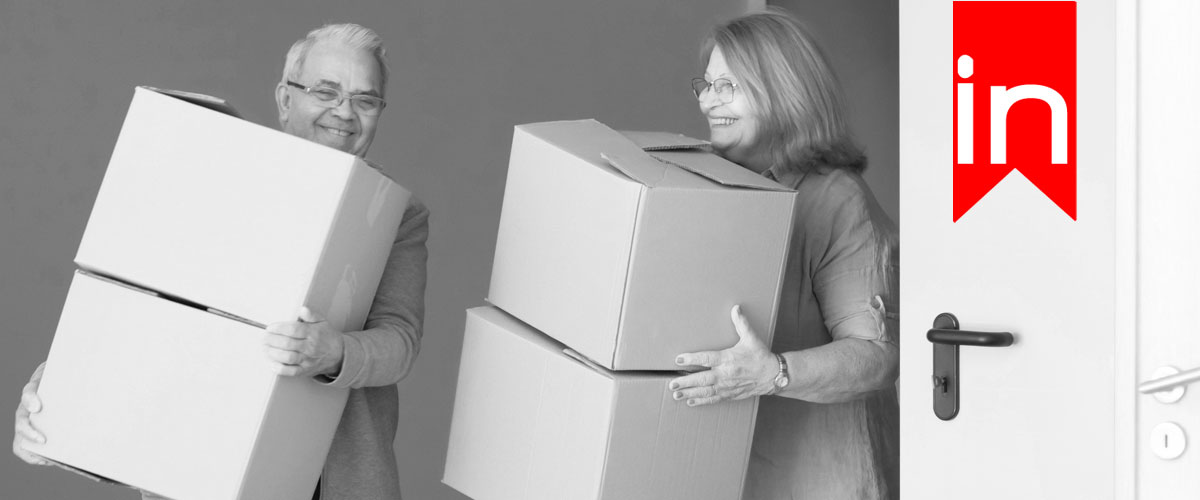Downsizing can be a choice or a necessity but it doesn’t have to be a negative experience. It can be overwhelming when considering a move to a smaller home, such as a condo, or even a retirement home. But rather considering it as a downsize, let’s view it as a RIGHTSIZE. Rightsizing can be a positive experience, to ensure we are in a home that is the right fit for our current lifestyle and our current needs. Our lives change as we get older, it doesn’t always make sense to live in the same home our whole lives . Let’s look at some positive ways to make this an exciting journey.
Highlights
- Downsizing to a “rightsize” helps seniors find homes that fit their current needs, simplifying moves to smaller spaces like condos or retirement homes.
- Effective downsizing involves sorting belongings to keep, sell, donate, or trash, and using a checklist to manage the transition timeline and logistics.
- Starting decluttering early, considering legacy gifts, and making home repairs are crucial steps to prepare for a smooth move.
Make A List Of Your Plans
Get organized by creating a checklist with your plans and outline your goals and objectives. Create a timeline for when you need to move. If you need to sell your existing home before moving, consider the amount of time it takes to do so. Perhaps consulting a real estate agent for the best advice. If you are renting your current home, consider your original contract with the landlord and give the appropriate amount of notice to them.
Gather as much information as possible regarding your new home. For example, the size and square footage, and the exact move in date. It can also be helpful to determine who or how your things will be transferred to your new home, such as using a moving company or if you are moving to a retirement home, will they have a service to assist you. This is important if you have any health or mobility concerns.
Start With The Small Stuff
Determine what to keep, sell, donate, gift or throw away. After many years of living in the same home. People tend to find this the most challenging, especially if it’s a home you raised your family in. There can be a lot of stuff accumulated, not just by you, but your whole family. When making these decisions, you may want to include any family that has lived in the house as well, where your house has now become their storage when they moved out.
There are many ways to reduce clutter around the house and prepare for your next move. Sometimes it’s easier to determine what not to keep, to help you decide on what to keep. Try starting by creating 4 different categories, either using boxes or spacing around the house. Categorize your areas with to donate, to sell, to recycle, and to the trash.
When donating consider local donation centres or charities such as Salvation Army, Value Village, Habitat For Humanity ReStore and Oasis Clothing Bank. Furniture Bank also takes used furniture and gives them to families in need.
Consider a garage or yard sale to help get rid of items of value. Perhaps enlisting family members or friends to assist in the sale, or get together with neighbours and pool together a larger sale.
When recycling items, make sure they can be recycled by putting out on your curb or using the City or Town’s recycling centres. For example, electronics, batteries and light bulbs can be recycled! But some municipalities cannot recycle them by placing them in your Blue Box. They must be given to a Recycling Centre. Some home improvement shops such as Canadian Tire or Home Depot have a battery and light bulb recycling program. Please check out your local municipality and stores to see what and where things can be recycled.
Unfortunately, some things will ultimately end up in the trash. Although most people try to be sustainable, it is difficult to avoid trash. Comb through your items a few times and see if they can be placed in any of the other categories before actually throwing them away. However, it is important to NOT move the trash into your next home.
The key here is not to overwhelm yourself with too much work. Start small and gradually increase your commitment over time before your move date. Remember, this isn’t just about getting rid of all your stuff — it’s also about what you need in your new home that fits your life and needs better and to live more comfortably there.
The Early The Better
Begin decluttering early. Start decluttering regardless if the plans for moving have not been finalized yet. Although it doesn’t seem like it, it can sometimes take longer than you think to organize or get rid of things. Consider starting with the garage, utility room, spare bedroom or any space not being used frequently. During this time, consider what might be helpful to maintain the property. For example, if you own your house and you plan on reselling it, you may want to consider some repairs, light renovations or just even a fresh new coat of paint before selling. If you are current renting, you may want to consider repairing any damages that may have occurred during your rental period.
Legacy Gifts
Legacy gift giving is a great way to pass down large or treasured possessions. You don’t have to wait for the future to do this, you can do it now. This can also help you downsize earlier, and you don’t need to keep any treasured items with you. This is also a great time to share stories and experiences and enjoy special moments with your loved ones now rather than later. Keep in mind, if you are considering giving a legacy gift that is real estate or things that may gain in value such as stocks and shares, speak to an Estates and Wills lawyer and an accountant to discuss the tax and ownership implications by doing so.
Summary
Moving into a new home is a big step for anyone, but it’s especially difficult for those who have lived in their homes for decades. Finding the right home for your next stage of life is important. But the most important aspect is to have a positive outlook but also to be prepared for moving to the right home. This is an important transition and it is important to plan ahead.


